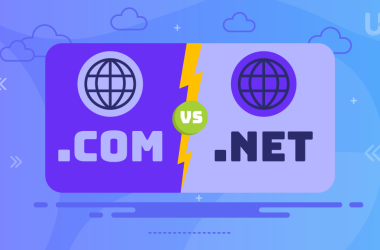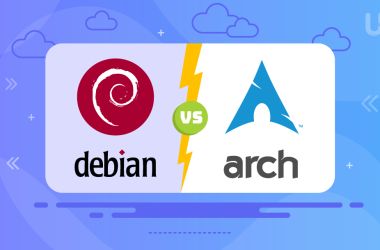Web servers are the unsung heroes of the internet, responsible for delivering web content to user’s browsers. They act as intermediaries between users and websites, processing requests and ensuring the smooth retrieval of text, images, videos, and other web assets. The choice of a web server is pivotal in determining the performance, security, and scalability of a website. Apache vs. Nginx are two competitors in the world of web servers, each with a unique set of features and capabilities.
The purpose of this comparison is to dissect the strengths and weaknesses of Apache and Nginx, aiding users, developers, and system administrators in making informed decisions. By understanding the basics of each web server, you will have clarity on when to choose Apache or Nginx based on performance requirements and other considerations.

Apache Web Server
Apache has a storied history, originating in 1995 when the Apache HTTP Server Project was established. Over the years, Apache has evolved into the most widely used web server globally, playing a pivotal role in the growth of the World Wide Web.
Key Features and Capabilities
.htaccess Configuration
One of Apache’s distinctive features is its use of .htaccess files. These configuration files empower website administrators with per-directory settings, enabling quick and dynamic adjustments to the server configuration. This ease of configuration makes Apache particularly user-friendly.
Multi-platform Support
Apache’s versatility truly stands out, showcasing its seamless compatibility with various operating systems such as Linux, Windows, macOS, and more. This broad spectrum of support has significantly contributed to its widespread adoption across different environments, making it an excellent choice for hosting websites, particularly on Linux VPS setups where reliability and flexibility are paramount.
Module System
At the heart of Apache’s flexibility is its modular architecture. The module system allows users to extend and tailor the server’s functionality based on specific requirements. This extensibility is a key factor in Apache’s adaptability to diverse use cases.
Dynamic Content Handling
Apache excels in handling dynamic content, supporting server-side scripting languages such as PHP, Perl, and Python. This capability is vital for websites that require the execution of scripts to generate content dynamically, contributing to Apache’s versatility.
Performance Considerations
Resource Usage
While Apache is renowned for its robustness, understanding its resource consumption is essential. Factors such as server configuration and the nature of hosted applications influence resource usage. Efficient resource management is critical for optimal performance.
Scalability
Apache’s scalability is a key consideration for websites anticipating growth. The server’s ability to handle increased traffic and resource demands without compromising performance is crucial for sustained success.
Security Measures
Access Control and Authentication
Apache provides robust access control mechanisms, allowing administrators to define and enforce security measures. The server supports various authentication methods, including basic and digest authentication, enhancing the overall security posture.
SSL/TLS Support
In an era where online security is non-negotiable, Apache’s comprehensive support for SSL Certificates/TLS protocols ensures secure data transmission. This feature is particularly crucial for websites handling sensitive information.
Nginx Web Server
Nginx, born in the early 2000s, represents a paradigm shift in web server design. Created by Igor Sysoev, Nginx (pronounced “engine x”) was developed to address the performance and scalability limitations of traditional web servers like Apache. Its asynchronous, event-driven architecture sets it apart, making it an attractive choice for high-traffic websites.
Key Features and Capabilities
Architecture
Nginx’s event-driven architecture is a game-changer. Unlike traditional servers, it doesn’t spawn a new process or thread for each connection. Instead, it efficiently handles multiple connections within a single, highly optimized process, leading to lower resource consumption and improved performance.
Lightweight and Efficient
Nginx is celebrated for its lightweight nature. The server’s minimal resource footprint is a result of its efficient design, allowing it to handle a large number of concurrent connections with minimal strain on system resources.
Reverse Proxy Capabilities
One of Nginx’s standout features is its powerful reverse proxy capabilities. Acting as an intermediary between clients and backend servers, Nginx excels in load balancing distributing incoming requests to optimize resource utilization and ensure high availability.
Performance Considerations
Low Resource Usage
Nginx’s emphasis on efficiency translates into low resource usage. This characteristic is crucial for maintaining optimal performance, especially under heavy traffic loads or on servers with limited resources.
High Concurrency and Speed
Nginx’s ability to handle a large number of simultaneous connections with minimal latency makes it a preferred choice for high-traffic websites. Its high concurrency and speed contribute to fast load times and an enhanced user experience.
Unveiling the Ultimate VPS Hosting Choice!
Elevate your hosting experience with the Apache vs. Nginx comparison. Explore the optimal solution for your project and harness the power of UltaHost’s hosting services. Discover fast VPS Hosting and take your website’s performance to new heights!
Security Features
Security Modules
Nginx supports various website security modules that enhance its ability to protect against common web vulnerabilities. Moreover, these modules provide an additional layer of defense, making Nginx a robust choice for security-conscious users.
DDoS Protection
Nginx includes features designed to mitigate Distributed Denial of Service (DDoS) attacks. Its ability to handle a large number of concurrent connections effectively positions it as a resilient defender against various types of DDoS attacks.
Comparison
Performance
Apache and Nginx demonstrate significant distinctions in performance metrics. Benchmarking frequently highlights Apache’s commendable stability, making it an excellent choice for various applications. Conversely, Nginx, leveraging its event-driven architecture, excels in managing concurrent connections and providing swift, low-latency responses. While Apache may consume more resources, it proves advantageous in environments with ample resources. In contrast, Nginx’s lightweight design shines when considering resource constraints, making it an ideal selection for those looking to rent a VPS where efficiency and optimal performance are crucial considerations.
Configuration and Ease of Use
Configuration plays a pivotal role in sеrvеr administration. Apachе’s configuration filеs, whilе powеrful, arе known for thеir complеxity, rеquiring usеrs to invеst timе in mastеring thе syntax. In contrast, Nginx’s configuration syntax is laudеd for its simplicity and rеadability, contributing to a morе approachablе usеr еxpеriеncе. Additionally, whilе Apachе oftеn rеliеs on .htaccеss filеs for pеr-dirеctory configuration, Nginx cеntralizеs configuration in thе main sеrvеr block, potеntially еnhancing pеrformancе by avoiding еxcеssivе usе of .htaccеss filеs.
Flexibility and Extensibility
In terms of flexibility, Apache’s modular architecture allows for extensive customization through a wide array of modules. This makes Apache highly adaptable to diverse use cases. Nginx shines in reverse proxy scenarios, efficiently distributing incoming requests to backend servers, making it a preferred choice for load balancing. While Apache boasts a vast repository of third-party modules and extensions, Nginx’s focus on core features may necessitate users to leverage external modules for more specialized functionalities.
Security
Security is a paramount consideration for web servers. Both Apache and Nginx offer robust built-in security features, including access controls, authentication mechanisms, SSL Certificates, and TLS support. In terms of community support and updates, both benefit from active and engaged communities, ensuring regular updates and prompt responses to security issues. While Apache, as a widely used web server, has a history of effectively addressing vulnerabilities, Nginx also demonstrates a commitment to timely resolutions, leveraging the collaborative efforts of its community.
Use Cases and Recommendations
When to Choose Apache
Apache proves to be an excellent choice in scenarios where stability, a rich feature set, and extensive support for third-party modules are paramount. If your project requires a web server with a long-established history, versatile module system, and compatibility across various platforms, Apache is a solid option. It is particularly well-suited for traditional web hosting environments and situations where a multitude of modules and extensions are needed for specific functionalities.
When to Choose Nginx
Nginx stands out in environments where high performance, low resource consumption, and efficient handling of concurrent connections are critical. If your project involves serving static content, dealing with a high volume of concurrent users or requires a web server for reverse proxy and load balancing scenarios, Nginx shines. Its event-driven architecture makes it exceptionally well-suited for modern web applications, microservices architectures, and situations where responsiveness and speed are top priorities.
Hybrid Scenarios and Load Balancing
In certain situations, a hybrid approach utilizing both Apache and Nginx can offer the best of both worlds. For example, Apache can be employed for its extensive module support and dynamic content handling, while Nginx can act as a reverse proxy to enhance performance and efficiently distribute incoming requests. This hybrid setup is especially beneficial in large-scale deployments, providing a balanced solution that leverages the strengths of both web servers.
Load Balancing: Nginx, with its robust reverse proxy capabilities, excels in load-balancing scenarios. If your project anticipates a high volume of traffic and demands the distribution of requests across multiple servers for improved performance and availability, Nginx is an ideal choice. Its lightweight design and efficient handling of concurrent connections make it a powerful tool for load balancing in diverse environments.
Conclusion
In conclusion, the choice between Apache and Nginx depends on the specific requirements of your project. Understanding the strengths and weaknesses of each web server allows you to make an informed decision that aligns with your performance, configuration, flexibility, and security needs. Whether you opt for the stability of Apache or the efficiency of Nginx, each web server brings its own set of advantages to the table.
Ready to embark on an enhanced hosting journey? Explore UltaHost’s cutting-edge VDS Hosting services and stay ahead in the ever-evolving web environment. Here’s to seamless hosting and website success!
FAQ
What are the common security vulnerabilities associated with Apache and Nginx?
Both Apache and Nginx have demonstrated a commitment to addressing vulnerabilities promptly. However, the specific vulnerabilities may vary over time. Regularly updating to the latest versions and staying informed about security advisories is crucial for maintaining a secure web server environment.
Can I switch from Apache to Nginx or vice versa?
Yes, it is possible to switch between Apache and Nginx, but it requires careful consideration of your existing configuration and potential adjustments. Moreover, migration tools and documentation are available to facilitate a smooth transition.
Is Nginx always faster than Apache?
While Nginx often outperforms Apache in handling concurrent connections and resource efficiency, the actual speed may vary based on the specific use case, server configuration, and the nature of the hosted applications.
How does Nginx handle static content?
Nginx is particularly efficient at serving static content due to its lightweight design and high concurrency capabilities. It excels in scenarios where quick delivery of static assets is crucial for optimal website performance.














